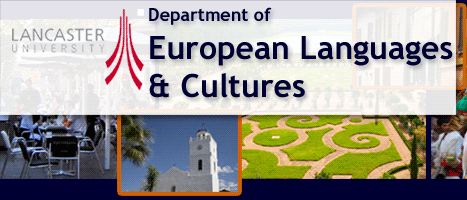
NEWS AND EVENTS ARCHIVE (2009-2014)
Archive
Warning: Undefined array key 1 in /export/depts/php/fass/news/shownews-include.php on line 11
Warning: Undefined array key 2 in /export/depts/php/fass/news/shownews-include.php on line 11
Professor Jaroslav Krejci, 1916-2014

Date: 21 February 2014
We regret to announce the death of Professor Jaroslav Krejci on Sunday 16 February 2014 at the age of 98. Professor Krejci taught in the Departments of French Studies, German Studies and Religious Studies from 1969 to 1983 and received an honorary doctorate from the university in 2000.
Professor Jaroslav Krejci, 1916-2014
Because Professor Krejci lived to nearly one hundred years of age many of his close Lancaster colleagues have passed on, but those of us who are still alive and in whom the memory of Professor Krejci is strong, consider him to be one of the foremost academics ever to have made their academic home in Lancaster - a man of exceptional intellect, international standing, and personal charisma. Professor Krejci was the son of a lawyer who became the Czechoslovak Prime Minister. Professor Krejci's early career as an economist was brought to an end when he was imprisoned in post-Second-World-War Czechoslovakia for having resisted the forced merger of Social Democracy with the ruling Communist Party (Professor Krejci was committed to social democracy throughout his life); but he made a virtue of the years of confinement by reading across an astonishing range of knowledge in the fields of history, society, religions, economics, socio-linguistics, and language; this would be the foundation for later research modelled on the work of Arnold Toynbee with whom he corresponded. Like Toynbee, Professor Krejci researched into the rise and fall of civilizations around the world and throughout recorded history. His last book, The Paths of Civilization, may stand for many of his publications; it is no less than a comprehensive digest of key developments in all the major civilizations that have ever existed. Each culture is analysed, so to speak, from the inside, since Professor Krejci presents clear accounts of what it was like to live in a given historical epoch with reference to the ways in which its inhabitants came to terms, both intellectually and emotionally, with the particular historical, social, economic, religious and psychological challenges they faced. It was humbling to realise, when one met this new Lancastrian who had only come to this country after the 1968 invasion of Czechoslovakia by the forces of the Warsaw Pact, that he was far more aware of the forces that had shaped the ethos of this country than all but a handful of English academics. Decades before most Lancaster academics had learnt to spread their wings, Professor Krejci was travelling the world, lecturing and advising; we knew of his international reputation but our most immediate impression was of his Central European charm. When Professor Krejci caught sight of a friend he would come over, embrace you and, whatever your gender, address you as 'My Dear, ...' Occasionally, he and his brilliant wife, Anna (to whom he was devoted but who unfortunately died in her seventies) would invite you to their home on Bowerham Road. Here the sense of conducting a dialogue with super humans would be softened and brought gently down to earth by fragrant tea or strong continental coffee, served in delicate porcelain cups and accompanied by Anna's delicious pastries. We always left feeling uplifted by the experience. This tradition was continued after Anna's death by three kind, gifted and devoted Czech ladies, one of whom was his sister-in-law, Jitka, who took turns in keeping house and caring for Professor Krejci throughout the latter decades of his life.
Professor Krejci's head was always immersed in the clouds of academic debate throughout the world, but his heart was firmly attached to Lancaster though he continued to visit Prague and teach and research there until his early nineties. He had a strong admirer in the Czech President, Vaclac Havel, and in 1998 was awarded the Czech Republic's Medal of National Merit. After his retirement from Lancaster University, he set up a research institute at the Charles University in Prague; this was the base for the Anna and Jaroslav Krejci Research Foundation which offers support to young scholars continuing the academic tradition which he promoted. (Philip Payne, Emeritus Professor of German Studies).
Further information
Associated staff:
Associated departments and research centres: European Languages and Cultures
Keyword: